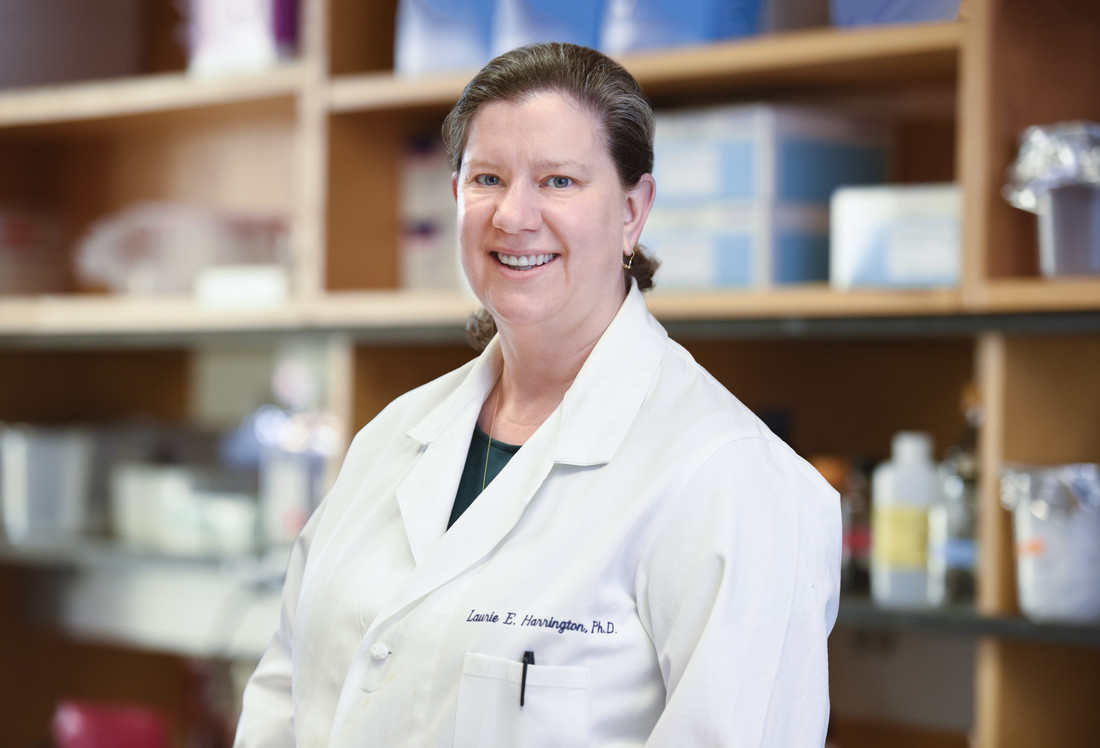
Laurie Harrington, Ph.D., renowned researcher and associate professor in UAB’s Department of Cell, Developmental and Integrative Biology, is the latest winner of the School of Medicine’s Featured Discovery. This initiative celebrates the important research from School of Medicine faculty members. In preclinical experiments, Dr. Harrington and colleagues have discovered a subset of immune cells that create and sustain chronic inflammatory bowel disease. These cells could become potential therapeutic targets to ameliorate or cure Crohn’s disease and ulcerative colitis. Read more from UAB News here.
The School of Medicine communications staff sat down with Dr. Harrington to gather insights about her research, UAB and the science community.
 Q: What compelled you to pursue this research?
Q: What compelled you to pursue this research?
A: CD4 T cells are a major player in autoimmunity and chronic inflammation, yet how these cells promote disease is still unknown. My laboratory has long been interested in this question and is working to understand what properties and characteristics of the effector CD4 T cell population mediate pathogenesis, with a particular focus in this study on Inflammatory Bowel Disease (IBD).
Q: What was your most unexpected finding?
A: The most unexpected finding in this study was that there exists a novel population of effector CD4 T cells with stemness properties during chronic intestinal inflammation, and these cells are capable of conferring and sustaining disease. A limited number of studies have described the presence of T cells that possess stem-like characteristics, but these are all in the context of infectious disease or cancer and are predominantly CD8 T cells. Our results expand these previous findings to now include stem-like CD4 T cells and also demonstrate similarities between CD4 T cells during autoimmune chronic inflammation and CD8 T cells in chronic viral infection and cancer.
Q: What is your research’s relevance to human disease?
A: Throughout this study, we utilized a pre-clinical model of IBD, so the hope is that our findings will be translatable to Crohn’s Disease and/or Ulcerative Colitis, as well as other T cell-mediated autoimmune diseases, and provide a new therapeutic target that may more effectively combat disease.
Q: When did you know you had an important discovery?
A: We had an ‘aha’ when we were analyzing our RNA sequencing data set comparing the pathogenic and non-pathogenic CD4 T cell subsets. The data did not reveal a molecule or pathway traditionally associated with inflammation, but instead, it showed striking differences in the differentiation states of the cells, with the pathogenic CD4 T cells exhibiting a stemness gene signature. We postulated that this is what supports the chronicity of many autoimmune disorders and why our current therapies do not effectively cure disease. We feel this is an important shift in our way of thinking about autoimmunity and chronic inflammation.
Q: What do you find makes the science community here unique?
A: The research community here at UAB is very open and helpful—people want to see each other succeed and will help them to do that. UAB is also highly collaborative. As a result of this study, my group has formed new collaborations on campus that will continue beyond this manuscript and have taken the research in my laboratory into new directions that we probably wouldn’t have gone in.